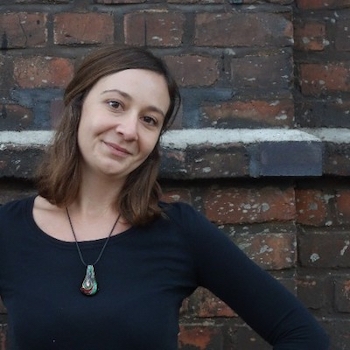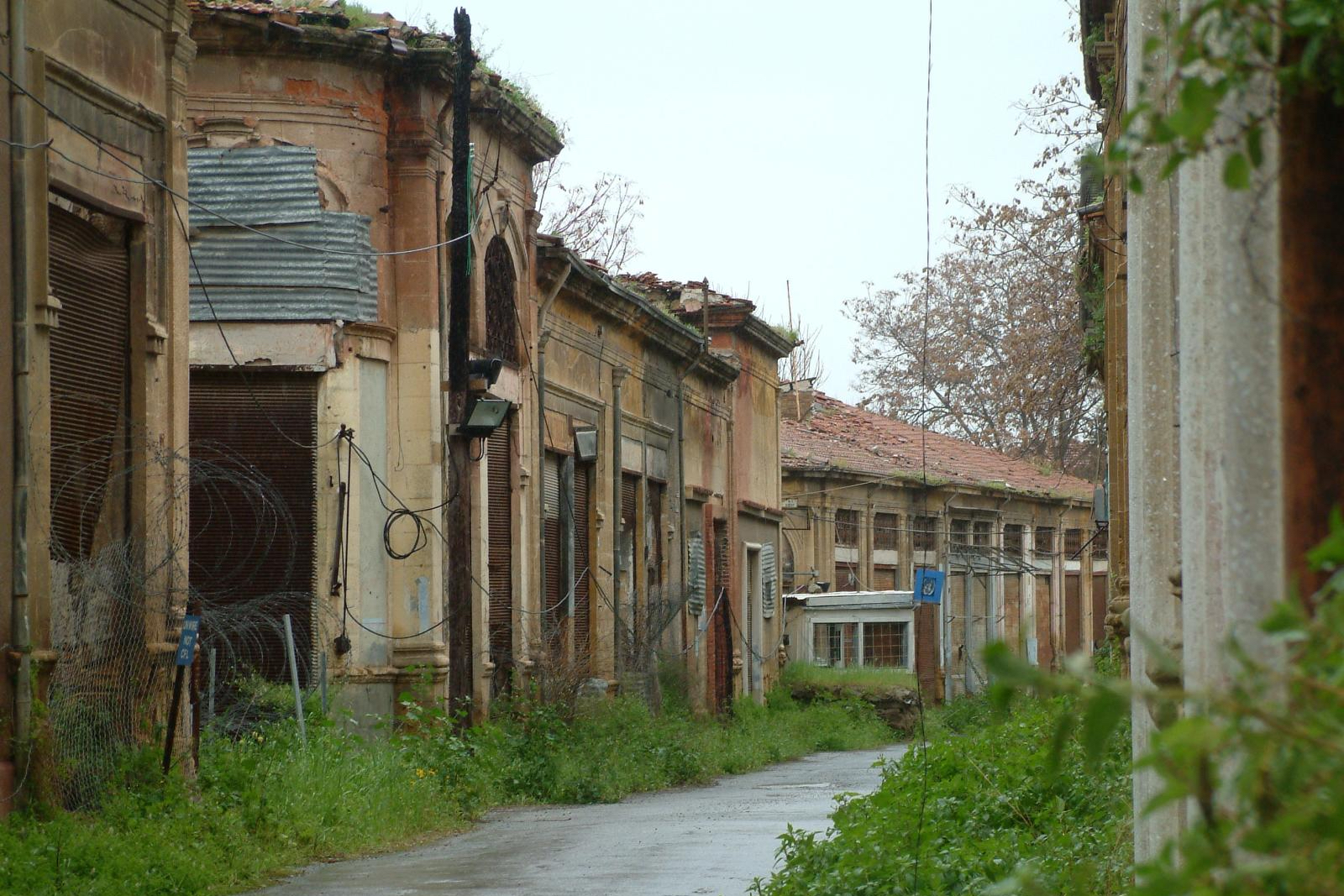
Longform
The Cyprus Story
This is the story of two friends, Rifat and Pandelis. Their story could be out of a movie. It should be. Unfortunately, it is not. Rifat and Pandelis are real, and so is their story. A story that should be told, and more importantly, heard.
Rifat and Pandelis live in the same city. They are good friends, best friends, one might even say. Under normal circumstances, they would meet up for a beer, go to concerts, plan road trips. But their circumstances are not normal. They are Cypriots. Rifat is a Turkish Cypriot and Pandelis is a Greek Cypriot. Their country, the island of Cyprus, has been divided for almost 40 years. The border between the (Greek) Republic of Cyprus and the Turkish Republic of Northern Cyprus runs directly through Rifat and Pandelis’s city – Nicosia. The two met through a forum on the internet – the one space that is not divided by a border in Cyprus. Both were interested in meeting Cypriots from “the other side,” and they found each other. If Rifat and Pandelis had stuck to the rules, believed the news, and listened to their friends and family, they would have never talked to each other. They probably would have despised each other just as many Turkish and Greek Cypriots despise each other. However, what many Cypriots don’t remember, or don’t want to remember, is that before “Greek Cypriot” and “Turkish Cypriot” were even terms, the peoples were neighbors. Some spoke Turkish, some Greek. Some went to the mosque, some to church. They talked together, worked together, lived together – as Cypriots.
But what is a Cypriot? What is a real Cypriot? This question is almost impossible to answer, and there might not even be such a thing as a real Cypriot, as a glance at Cyprus’s history shows.
Cyprus was already an inhabited island during the stone age. Several remains of a civilized culture have been found, but nobody knows for certain to whom they belonged. Where did the first Cypriots come from? Who were they?
Some think that the first Cypriots came to Cyprus by boats from other Mediterranean countries, maybe from places that are now called Turkey, Greece, Lebanon, or Syria.
Archeological findings on the island prove that the island has been inhabited by countless groups. From the Bronze Age until the present, Cyprus has been home to the Mycenaean Greeks, the Dorian Greeks, Syrian settlers, the Phoenicians, the Egyptians, the Persians, the Romans, the Arabs, the Byzantines, the British crusaders, the French, the Venetians, the Genoans, the Ottomans, the Greeks and the Turks. Cyprus has been conquered, invaded, settled peacefully, traded, and passed on as a gift from one kingdom to another countless times. So I ask again: who can claim to be a real Cypriot?
This question has become one of the most fought-over questions in Cyprus. Especially during the past 60 years, people have been discriminated against, displaced, and killed over it, but the question still hasn’t been answered.
Pandelis could care less. “We are so mixed! It is impossible to say what a Cypriot is!” Pandelis is an energetic young man who is interested in economy, history and science. When he talks, his hands seem to be moving in 20 different directions at the same time. Especially when he is passionate about something. And he is very passionate about his country. “I work with scientists, so many of my colleagues come from different countries. When we talk to each other, we speak English. So, nobody knows where you are from, and it doesn’t matter.”
Until it does. “I have some Greek Cypriot colleagues who became friends with some of our co-workers. They went out together, they had fun – just like normal friends. Until they found out that their new friends were actually Turkish Cypriots.” Some of them stopped being friends. Pandelis’s hands move even faster now. “How can you be so silly? You cannot stop liking a person, just because he is from a city 30 minutes north from yours. Who cares?!”
Actually, in Cyprus, many people care. A recent survey conducted by SeeD, a UN supported organization working in Cyprus, shows that 70% of Greek Cypriots want to keep their distance from Turkish Cypriots. On the other hand, 62% of Turkish Cypriots say that the one group they feel most reserved toward is Greek Cypriots. While neither group wants their country to be divided, they do feel more comfortable remaining at a distance. Nobody trusts “the other,” and the current division gives both sides a feeling of security. How did this country of so many different identities become so fixated on just two?
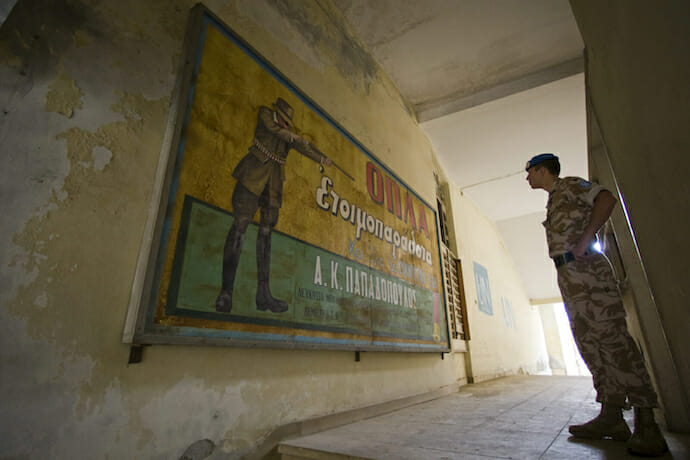
“It is religion,” says Rifat. He is convinced that one of the factors that has driven the country apart is religion. Rifat works as an air traffic controller at Ercan airport in North Nicosia, and he has a very clear opinion about most things. He was born to Turkish parents in North Nicosia, and apart from 8 years of studying in Istanbul, he has always lived in Northern Cyprus. “The Turkish Cypriots are not very religious. Just look around!” We are sitting in a cafe in the old town of North Nicosia. Girls in shorts walk by, a woman is driving her husband to work. The muezzin calls for prayer, but nobody seems to get up to go to the mosque. “You see! We are very secular. But the Greek Cypriots, they are extremely religious. They and their religious leaders have always blamed us Muslims for everything. They are so religious that their first president was a priest. Now you tell me – who is the religious fanatic here?!” When Rifat speaks, his voice is calm and quiet, but his words cut as sharp as a knife. In them are audible many years of disappointment. Rifat is not completely wrong when he says that religion has been used to divide the Turkish and the Greek Cypriots. He is also not completely right in saying that Turkish Cypriots don’t care about religion. Again, some of the answers can be found by looking at history.
The roots of hatred between Greek and Turkish Cypriots go as far back as the Ottoman empire. As was the custom of the Ottomans at the time, after conquering Cyprus, they brought a big group of Turkish people from the mainland. The settlers were given houses and land, and started living on the island. While the Ottomans were fearless during times of war, they knew how valuable peace was, too. To keep the peace, they decided to give some representation in political decisions to the Greek minority living on Cyprus. The representative of the Greek Cypriots was the head of the Greek Orthodox Church in Cyprus. For 300 years, the Ottomans ruled Cyprus, and for 300 years, the island experienced a period of relative peace. Turkish Cypriots and Greek Cypriots lived next door to each other without fighting each other, but also, without engaging with one another. Maybe this was when the first seed of distrust was sown— a feeling that became an idea, an idea that became a political agenda— a political agenda that became a war.
When the Ottoman empire crumbled and the British took over Cyprus, they were well aware of the tensions between Greek and Turkish Cypriots, and used them to their advantage— divide and conquer was a common façon de gouverner used by the British. British politics fueled the hatred between the two groups while keeping the groups from directing their frustrations at the British rulers.
By the 1950s, the feelings of distrust between Greek and Turkish Cypriots had formed into an idea of “us vs. them.” On one side, there was “us, the Greek Cypriots, and them, the Turkish Cypriots that don’t belong here.” On the other side there was “us, the Turkish Cypriots, and them, the Greek Cypriots that hate us.” By the time Cyprus declared independence from the UK on August 16th, 1960, the idea of us vs. them had become politics.
The Constitution of Cyprus divides the parliament into two sections; there are seats for Greek Cypriots and seats for Turkish Cypriots. Yet, the idea of there being two opposite groups had already grown too strong. Supported by the Greek unification movement Enosis on the one side, and the Turkish reflex to protect and respond on the other side, two terrorist groups (EOKA on the Greek side and T.M.T. on the Turkish side) faced off against each other. The political agenda had become war. Only one year after the declaration of independence, EOKA staged a coup d’etat with the help of the military junta in Greece. As a result, the President of Cyprus had to leave the country, and the tension that had been brewing for over a decade culminated in what is now known as the years of intercommunal violence. Or, the years of terror, as Pandelis calls them.
Pandelis has become pensive. He sips on his frappe, a Cypriot version of iced coffee, and looks into the distance. “I am almost ashamed to admit this. But I thought that those years after the declaration of independence until the Turkish invasion were a time of peace. That’s what they taught us in school. There was independence, and then we had peace until Turkey invaded our country.” He shakes his head. “What a lie!” What Pandelis didn’t learn in school is that for about a decade, Turkish and Greek terrorists killed whoever was in their way, supported by the Turkish and Greek governments, and tolerated by the British government. During the intercommunal violence, T.M.T. killed fighters from EOKA, Greek Cypriots, and Turkish Cypriots alike. EOKA killed T.M.T. rebels, Turkish Cypriots, and Greek Cypriots. During these years, more than 600 people died, over 250 people disappeared, and at least 250,000 Cypriots were displaced. These numbers vary widely, depending on whom you ask.
“It doesn’t matter how you count,” says Pandelis. “What matters is that they just killed everybody. Everybody killed everybody. We killed just as many people as they did.” This is the first time he speaks about “we” and “they.” Pandelis is careful when he talks; he picks his words thoughtfully. When he talks about Cyprus, unlike his friend Rifat, he never talks about a Greek or a Turkish side. He prefers calling it “the north” and “the south.”
Whichever name one picks though, the country is de facto divided. Even though it is officially still one country, since 1974, when the Turkish army came to Cyprus, the country has had a very tangible border. In the north, the self-proclaimed Turkish Republic of Cyprus, not recognized by any other country except Turkey, and in the south, the Republic of Cyprus a member of the European Union since 2004. The border between the north and the south was “opened” in 2003, as a reaction to the economic crisis. This entails that now, Turkish and Greek Cypriots are allowed to cross the border by only showing their identity cards. At least, this is how it works in theory. In practice, however, it is still not very easy to cross, which is why Pandelis is drinking his frappe in the south of Nicosia, while Rifat is drinking his coffee in the north.
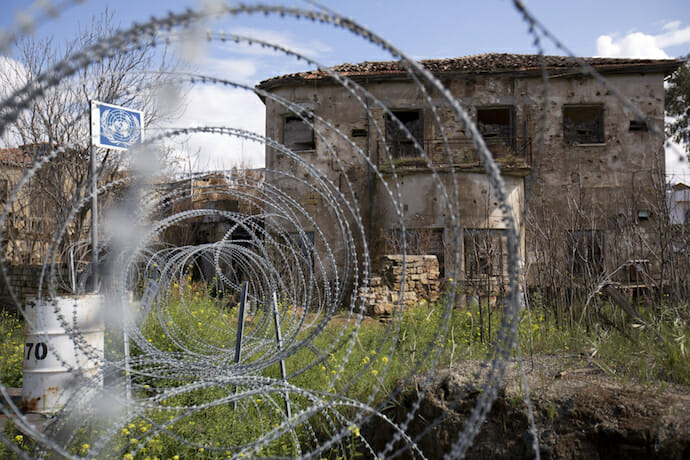
While Pandelis is enthusiastic and hopeful about the recent glasnost politics in Cyprus, his friend Rifat remains skeptical. “Ah, he is so optimistic!” Rifat smiles when he thinks about his friend. “I know he never says ‘them’ or ‘us.’ He is very kind, but he can only be so positive because he is Greek. They can be more confident about a re-united Cyprus because they are still the majority.” Rifat feels that many Greek Cypriots, especially the politicians, look down on the Turkish Cypriots for being a minority group. “They don’t consider us their equal,” he says. He feels it every day at work. Since his work place, Ercan Airport, lies in North Nicosia, it is not officially recognized as an airport by the Republic of Cyprus. Nevertheless, the airport controllers from the airports in the south of Cyprus have asked for an open emergency line to the Nicosia airport. “This would be wonderful! If they had asked us. But they didn’t even bother to ask the authorities in North Cyprus. Instead, they asked Ankara. As always. How is this supposed to work? How are we supposed to become one country, if the Greek side always treats us like Turkey’s baby?”
Since Turkey took control of the north of Cyprus, they dictate all the rules. It is the Turkish government that provides money for salaries and decides how much Turkish Cypriots get paid. The Turkish military is stationed on countless bases throughout the north, and Turkish flags are flying everywhere you look. Even the water supply is regulated by Turkey.
Even though the newly elected President of the Turkish Republic of Northern Cyprus (TRNC), Mustafa Akinci has recently declared that his country doesn’t need Turkey’s help any more, many political analysts doubt this. They think that the economy in the north of Cyprus would most likely collapse if it weren’t for Turkey. Since the TRNC is not recognized by any other nation in the world, there is hardly any trade, hardly any imports or exports— nothing to move the economy except money from Turkey. “This is exactly what is driving us apart!” Rifat tilts his head, thinks how to explain what he means, and then continues: “They pretend that we don’t exist. But we are here. People are breathing in air here, they live here. It is absurd to claim that there is no such thing as North Cyprus if all these people are here. They blame us for asking Turkey for help. But they are the first to turn to Turkey if they want anything from us! If nobody recognizes us except Turkey, where else are we supposed to turn to?”
Turkey and Greece, the two so-called mother countries, have steered the wheel of Cyprus’s fate for over 50 years. When Cyprus declared independence in 1963, three countries co-signed the London and Zurich Agreements as guarantors: Turkey, Greece and the United Kingdom. These three countries are supposed to make sure that each side, the Turkish Cypriot and the Greek Cypriot side, stick to the peace agreement. Somehow, this treaty has led to war and a divided country.
After the coup d’état in 1974 led by EOKA, Turkey responded immediately. The Turkish army took over the territory which they felt had been threatened and that they had promised to protect. However, after constitutional order was re-instated in the south, Turkey refused to leave, claiming that they didn’t trust the new government to be peaceful toward the Turkish Cypriots. They claimed that they were acting in accordance with the London and Zurich Agreements. The world community disagreed, and called Turkey’s actions an “invasion” and a violation of human rights. Since then, North Cyprus has been virtually non-existent to the world community. Apart from Turkey and Great Britain, there are no other embassies in the capital of North Nicosia. As a result, under the Turkish “invasion,” Northern Cyprus is becoming more and more isolated from the rest of the world.
“The people in the north don’t like the word ‘invasion’ very much,” says Pandelis, the word analyzer. “It makes them feel as if they were under constant attack, as if they were living in a war zone. And who wants to live in a war zone?” Even though Turkey is controlling the northern part of Cyprus, the daily life of Turkish Cypriots has not been affected by it, at least not visibly.
For many Turkish Cypriots, even though they would never call themselves Turkish or identify with Turkish politics, the Turkish presence makes them feel safe. Many are scared that if the Turkish army leaves, the Greek Cypriots will take over the north violently. This has been one of the big issues in the peace talks between Northern and Southern Cyprus. The other big issue is land.
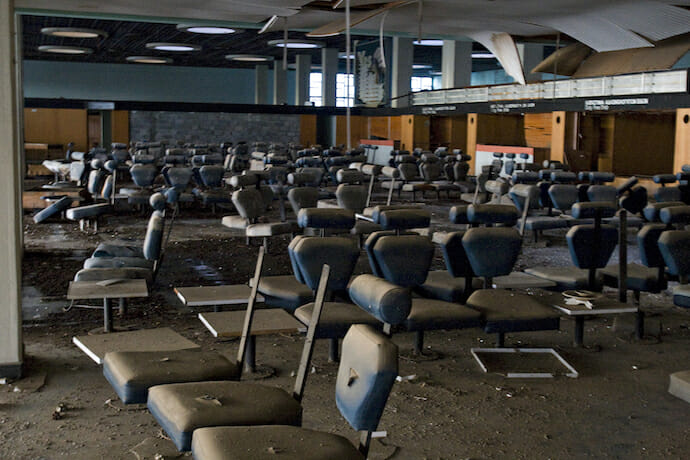
Since 1963, Greek and Turkish Cypriots have been displaced, more or less violently. Some were asked to leave, others forced out of their houses, others had to flee. What used to be a culturally diverse country has become an ethnically divided island of Turkish Cypriots living in the north and Greek Cypriots living in the south. Pandelis and Rifat have never known a different Cyprus. Their parents might remember having had a Turkish or a Greek neighbor, but for the past 40 years, Greek and Turkish Cypriots have lived apart, and consequentially, have grown apart. Still, many of them can remember where their houses used to be. Many Greek Cypriots, in particular, feel betrayed. Turkey, well aware of the low number of Turkish Cypriots compared to the population of Greek Cypriots on the island, brought Turkish “settlers” to Cyprus. They receive a regular pension from the Turkish government, health care, and a monetary reward for moving to Cyprus. Many of them were poor and unemployed, and seized this opportunity. “It is unfair! Why do they get support from the government, but we don’t?” say many Turkish Cypriots. “They took our land from us, they don’t belong here, they should leave,” say many Greek Cypriots. “It is against the Geneva Convention of Human Rights,” says the international community. “It is what it is,” says Pandelis, always diplomatic. “I am one of these settlers,” says Rifat.
Rifat’s parents took a chance and moved to Cyprus to start a new life. Rifat was born in Cyprus. He is a Turkish Cypriot by birth, and he thinks of himself as a Turkish Cypriot. He had to learn the hard way though, that identity is a matter of interpretation in Cyprus. Since his parents are both Turkish, many Greek Cypriot border agents won’t let him pass, since Turkish citizens are not allowed to enter from the north. Even though Rifat is by law a Turkish Cypriot and should be allowed to enter, he could only pass because he has a marriage certificate that proves that he is married to a Turkish Cypriot woman. However, Rifat is divorced, and the last time he wanted to cross the border to meet up with Pandelis, the migration officers started to suspect something. They were wondering why he always crossed the border without his wife, and demanded that if he ever wanted to cross again, he had to come with his wife. “I was so angry! I AM a Turkish Cypriot. Why don’t they recognize me? They only look at the Turkish parents and already decide that I am a persona non grata. It’s not fair!” For the first time, his voice becomes emotional. He looks down. “I was so angry that I started to think that maybe the Turkish Cypriot nationalists are right when they say we shouldn’t try to become one country again.”
His friend Pandelis didn’t mind that he had to come to North Nicosia to meet up with Rifat. By now, they had become very close friends. Pandelis really enjoys how they teach each other Turkish and Greek, how they talk about their country, and especially how they explore the north of Cyprus together. He didn’t care that it was now him who had to cross the border to see his friend.
However, only a few weeks after Rifat’s border incident, Pandelis was stopped at the border by the Turkish Cypriot migration officers. Rifat was waiting for him behind the official border line, and could see from afar that something was wrong. They wouldn’t let Pandelis cross. When Rifat came to help his friend, it turned out that the Turkish officer didn’t like that Pandelis’s ID had no expiration date. The Turkish Cypriot identity cards are only valid for 10 years, while the Greek Cypriot cards don’t expire. Both friends together were desperately trying to explain this to the officer – in vain. The officer had decided that he wanted to see a Greek Cypriot identity card with an expiration date from Pandelis. “I had to beg the border officer to let my friend pass so we could have a cup of coffee,” Rifat says. He has calmed down again. “This is when I realized that the nationalists are not right. Both sides are so silly and so stubborn, and we just cannot give in to that!”
Pandelis sighs. “I think that is one thing that all Cypriots have in common, unfortunately. We can all be very stubborn.” It is only half a joke since this stubbornness has prevented them from becoming one country again. The last attempt for a referendum of the Cypriot Annan Plan failed in 2004. Kofi Annan, the Secretary-General of the UN at the time, had come up with a peace plan tackling all of the sensitive issues in Cyprus, from property to the constitution. By voting for this plan, Cypriots would have agreed to become one country again. While 65% of Turkish Cypriots voted for the resolution, 76% of Greek Cypriots rejected it.
“This wasn’t stubborn, this was just silly,” Pandelis says. “The Greek Cypriots like to follow their leaders. At that time, the leader was very nationalistic and he said the Greek Cypriots shouldn’t vote in favor of the referendum – and so they didn’t.”
Now, while the Greek Cypriots, in face of a giant economic crisis, have become more open to the idea of a re-united Cyprus, the Turkish Cypriots feel duped. Recent surveys show that now the majority of Turkish Cypriots don’t think that a re-united country would be a good idea. 40 years of separation, many decades of negative propaganda, and one failed referendum have taken their toll. So what now? Nobody really knows. Peace organizations are desperately trying to figure out what the Cypriots want. What are their fears, what do they wish for? How can this country become one again? Many are afraid that if the path to unity is lost now, after so many years of separation, it might be lost forever.
As long as there are still people like Rifat and Pandelis, there is still hope. Against all odds, despite all the negative propaganda about “the others,” in defiance of their families and friends, regardless of what it costs – Pandelis and Rifat, the Greek Cypriot and the Turkish Cypriot, have become friends. Optimistic Pandelis and sharp Rifat both wait for the day when they will be able to meet in THEIR city without having to cross a border. They hope that in the future, there will no longer be Greek or Turkish Cypriots, but only Cypriots. They wish that one day their story won’t be a story for the news, but just the story of two friends. Just that.
